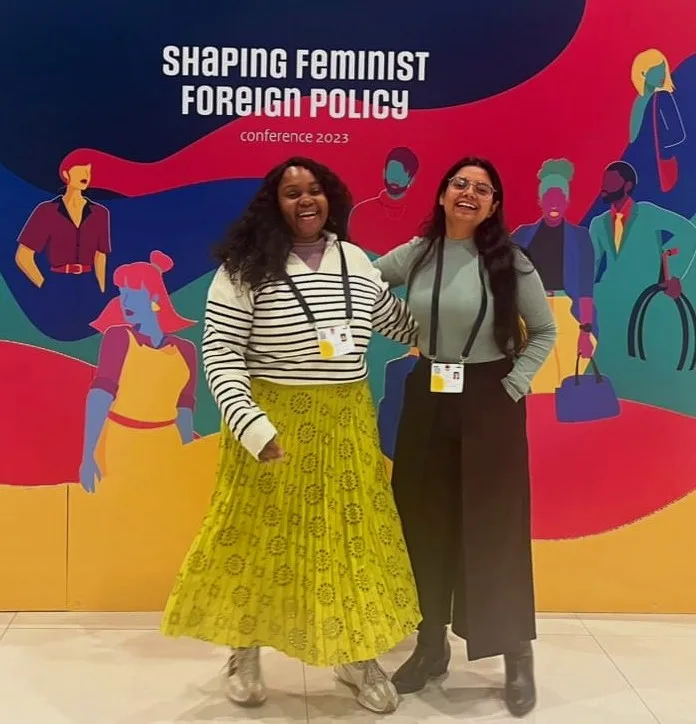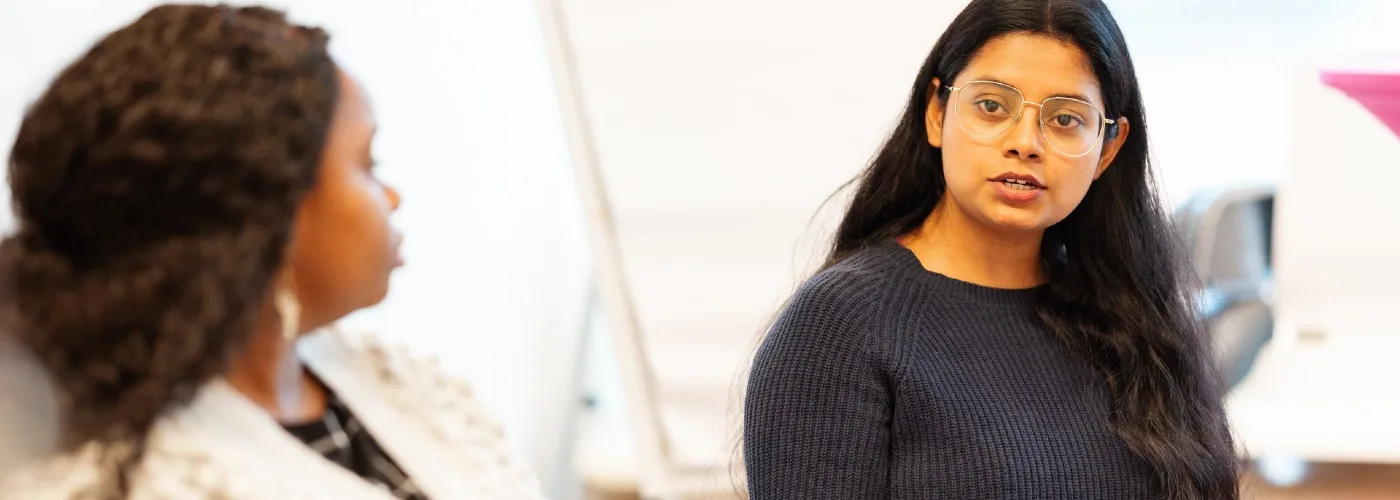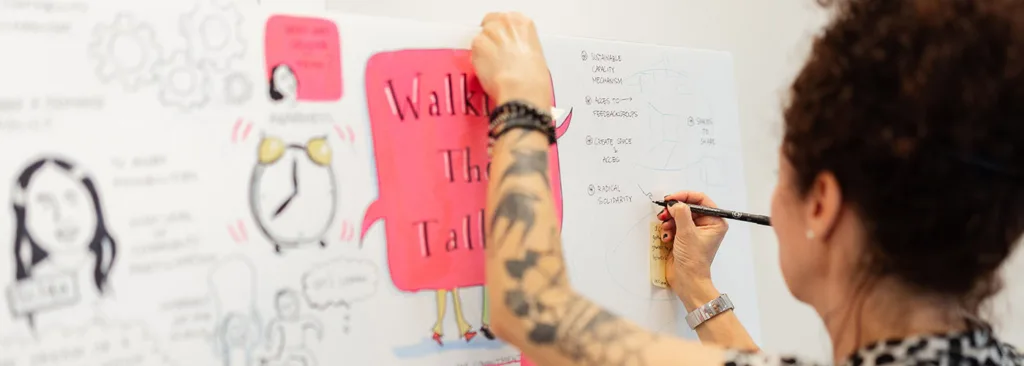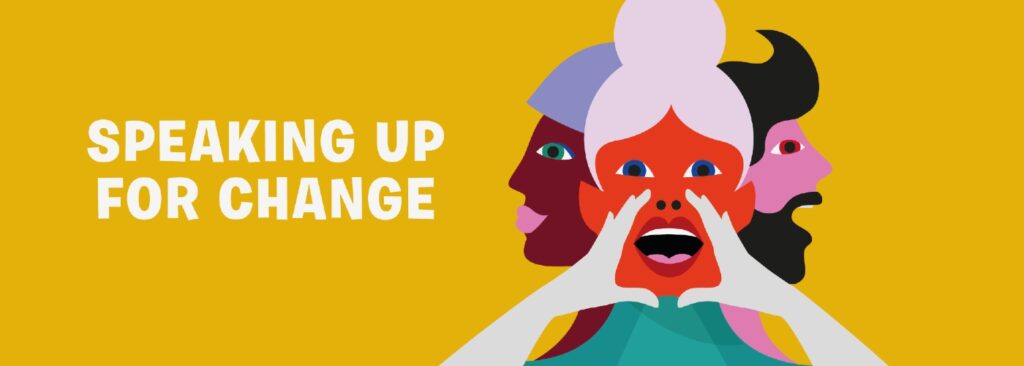As a young trustee with Restless Development, I had the opportunity to attend the Feminist Foreign Policy Community Festival organized by several civil society organizations (CSOs) on October 31 and the Shaping Feminist Foreign Policy Conference organized by the Netherlands Ministry of Foreign Affairs from on November 1 and 2 in The Hague.
I shared my thoughts and experience at the event titled ‘Centering Majority World voices and experiences in FFP monitoring and accountability’ organized by Walking the Talk consortium members Hivos, Restless Development, Centre for Feminist Foreign Policy and Equipop.
As much as I enjoyed the chance to connect with feminist changemakers from across the world, share my thoughts and learn from theirs, I felt very critical of the overall celebrations around the Feminist Foreign Policy (FFP) progress given the failure of UN Security Council and governments across the globe in mediating for a permanent ceasefire to protect the civilians of Gaza at the very least.
“My reflection from engaging in these spaces is that it is important that the advocacy around Feminist Foreign Policy is cognizant of the layers of power dynamics, economic interests and war profiteering.”
For the first time in my contribution in such spaces I brought more questions and concerns than recommendations. The only recommendation being the urgent need for deep reflective work on the state of the world affairs.
- How can FFP truly be practiced with budget cuts for social and human development agendas accompanied with sharp increase in the defence and security budgets?
- What does FFP really mean in the current context where several countries either directly or indirectly benefit from wars?
- What will be the role of CSOs in influencing FFP? Will they hold any real power in terms of being able to hold the government accountable? The lessons on this are plenty.
- How can FFP be practiced while the national feminist movements are still facing backlash?
- How can FFP be practiced with countries where the term feminist has not even made it to the internal (national) polices, where CSOs need to actively rephrase their programmatic titles and description to suit the limited understanding of power holding decision makers on what fundamental human rights look like?

Women, peace and security
There cannot be any FFP without critical assessment on women, peace, and security (WPS). As one of my co-panelist Caroline Kouassiaman shared during her intervention – words like #patriarchy, #imperialism, #colonization, #powerimbalance are not even mentioned in most of the FFP policies being championed as the next big step towards a more just world. At present, the contradiction in the vision and practice is evident. A lot of meaningful work needs to happen to ensure that the whole FFP momentum does not just remain a rebranding exercise.
And while that may sound depressing (as I was told), it was an honor to witness the relentless courage of many feminist activists from war-torn realities. The exhaustion in their demand for governments to ‘listen’ was evident and the clearly articulated challenge to the government officials to ‘walk the talk’ and ‘put your money where your mouth is’ was immensely powerful for me to witness.
Witnessing several young leaders making loud and clear demands for ceasefire across the halls of plenary opening and closing ceremonies specially restored my sense of faith and solidarity. While the financial commitments made by the governments are celebrated, more work clearly needs to happen for FFP to be truly meaningful.
My final reflection from engaging in these spaces is that it is important that the advocacy around FFP is cognizant of the layers of power dynamics, economic interests and war profiteering, that core issues on WPS are not co-opted, and that governments are held to account on the commitments they make through clear actions on policy coherence, clear accountability mechanism, and feminist funding.
About Walking the Talk
Walking the Talk wants to boost the adoption and implementation of Feminist Foreign Policies and gender equality in Germany, France, the United Kingdom, the Netherlands, and the European Union. In other words, inclusive foreign policies that champion gender equality and reflect the voices of women and LGBTIQ+ people from the Global South.
The program is led by a consortium of organizations based in four European countries: Equipop in France, Restless Development in the United Kingdom, the Centre for Feminist Foreign Policy in Germany, and Hivos in the Netherlands (leader of the consortium).




